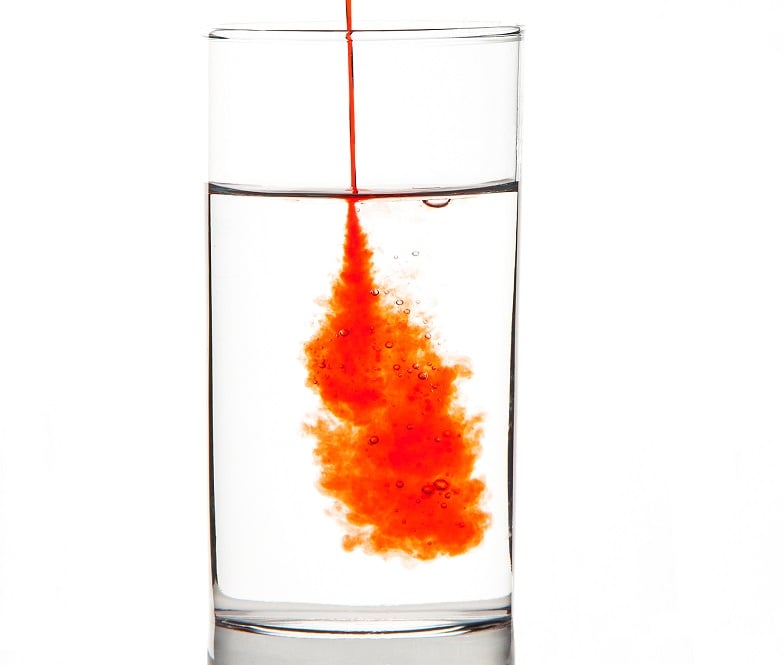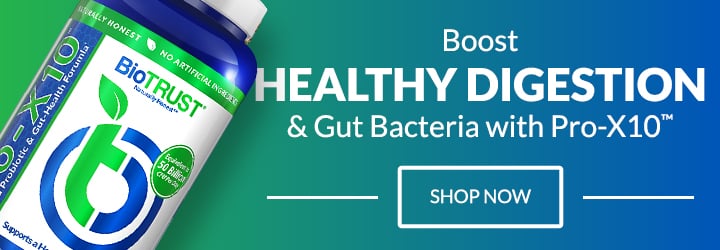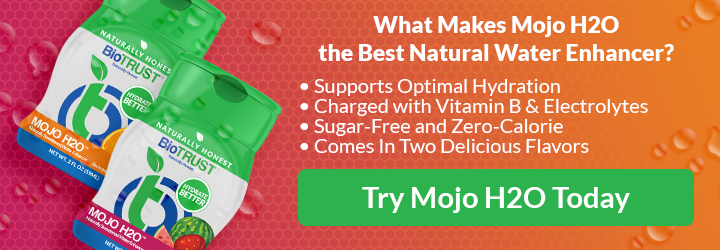Are Flavored Water Enhancers a Healthy Option?

It’s no secret that staying hydrated is critical for maintaining health and keeping the body functioning. This is because, on average, about 60% of the human body is water, making water the most essential nutrient for the body. 1 This water is responsible for carrying out many essential functions, such as regulating body temperature, moistening tissues, protecting body organs, and carrying nutrients to cells. Even beyond our body’s necessary functions, staying hydrated can also help improve the appearance of skin, boost the immune system, improve mood, and better cognitive function.
75% of Americans are Dehydrated
Despite knowing all these benefits, many of us find ourselves dehydrated with our bodies thirsting for water. In the U.S., 75% of adults suffer from chronic dehydration, drinking only 4 cups a day on average. 2 Without enough water, the body cannot function properly, negatively impacting functions such as metabolism, energy, circulation, hormone concentration, and mental performance.
So how much water should you be drinking a day? Typically, it is recommended to consume eight 8-ounce glasses of water daily. Although this can serve as a good rule of thumb, 8 ounces of water per day may not be optimal for everyone. You see, hydration needs vary from person to person based on activity levels, ambient temperature and humidity, altitude level, and numerous other factors.
A more person-specific recommendation could be to drink one-half to one ounce of fluid per pound of body weight per day. This means, depending on your weight, you may need to consume about 1 gallon of fluid per day, which comes out to 16 cups, or twice the standard recommendation.
That’s a lot of fluids! If you, like many people (myself included), find it challenging to consume enough liquids to stay hydrated each and every day, this may seem like an overwhelming task.
2 Common Reasons We Don’t Drink Enough Water
1. You’re Not Thirsty
One of the reasons it can be so difficult to drink enough liquids is the absence of thirst. We already know this is a problem, especially as we get older. This is because by the time you feel thirsty, you are already dehydrated. Even more, as we age, it can be more difficult to stay hydrated since the body retains less water and the signs of dehydration are often milder. This means we may not feel thirsty until we are significantly dehydrated. Similarly, this feeling of thirst is often wrongly identified as hunger and responded to by eating rather than by drinking.
2. Water is Boring!
The second most common reason drinking enough water can be troublesome is many of us prefer to drink something else. Let’s face it, water can be boring, and a lot of us don’t necessarily enjoy drinking it.
This could be because there are countless options for more exciting beverages to hydrate with. Unfortunately, many of these other beverages, including many hydration drinks, don’t hydrate us efficiently. Likewise, other beverages, such as sodas, fruit juices, sports drinks, flavored teas, and energy drinks, are often vehicles for calories and sugar, which are typically unnecessary.
With this in mind, it becomes obvious that the best choice for hydration is good old-fashion water. This brings us back to the dilemma of how to effortlessly consume enough water and the topic at hand: water enhancers.
The Downsides of Most Flavored Water Enhancers
Water enhancers are designed to jazz up plain ol’ water by adding flavor, sweetness, and color. Water enhancers come in both powders and liquid drops and are often found in convenient and portable packaging, which allows you to add flavor to any water anywhere. Water enhancers have been around for decades but have only gained major popularity in recent years with the increased focus on increased water consumption.
But not all water enhancers are created equal. Many well-known brands are packed with artificial sweeteners such as aspartame and sucralose. This is problematic since emerging research suggests that artificial sweeteners can disrupt gut health, metabolism, brain health and cognitive function, circulatory health, blood pressure, appetite and weight management, and more.
For instance, aspartame alone has been shown to induce scary side effects, such as cognitive dysfunction, behavior issues, and mood disorders. Researchers have found that aspartame “may disrupt the oxidant/antioxidant balance, induce oxidative stress, and damage cell membrane integrity, potentially affecting a variety of cells and tissues and causing a deregulation of cellular function, ultimately leading to systemic inflammation.” 3 This can lead to a series of problems, such as chronic systemic inflammation, which is an underlying factor in almost all chronic degenerative diseases. 4
Likewise, research has also linked sucralose to various alarming side effects, one of which is gut dysbiosis. 5 This is because sucralose contains chlorine, which may kill off healthy bacteria that live in your gut. If left unaddressed, a significant reduction in the amount of good gut bacteria may lead to issues such as bowel irritation and digestive discomfort, lowered immune response, fatigue, and suboptimal metabolic function.
Many biological mechanisms explain the effects of artificial sweeteners. Put simply, artificial sweeteners interfere with the human body’s learning process on how to deal with natural sugar. This causes the body’s normal mechanisms, such as appetite regulation and insulin production, to be impaired. This can lead to overeating, increased sugar and carbohydrate cravings, diminished release of important regulatory hormones, and poor regulation of blood glucose.
How to Choose a Healthy Flavored Water Enhancer
Luckily, as previously mentioned, not all water enhancers are made equally. There are several good options when picking water enhancers. When choosing a healthy water enhancer, you want to find one that helps you hydrate rather than counteract your efforts with needless chemicals.
To do this, several water enhancers contain electrolytes and B vitamins to further enhance hydration and energy levels. B vitamins are essential for energy and metabolism, which can help you feel energetic and support a healthy, properly functioning metabolism. Whereas electrolytes assist with hydration and fluid balance.
My favorite water enhancer, which checks every box on the list, is Mojo H2O from BioTRUST. Mojo H2O’s fruity flavors pack a punch to plain water. Yet, it is made with no sugar or artificial sweeteners and is instead naturally sweetened. Even more, Mojo H2O is also…
- Keto- and Paleo-friendly
- Non-GMO
- Soy-, gluten-, and dairy-free
- Vegan
- Artificial color- and preservative-free
- Manufactured in a GMP-certified facility
- Third-party tested to ensure purity, potency, and safety
Turn Hydration Into a Habit
It’s easy to forget that although water is one of the simplest nutrients, it is also the most vital. Flavored water enhancers are a great way to make drinking more water obtainable. However, many popular water enhancers are filled with added chemicals hiding in the ingredients list, so it pays to be picky when choosing the right one.
Nonetheless, by choosing a smart and healthful flavored water enhancer, turning hydration into a habit can become easier, and we can drink our way to better health.







